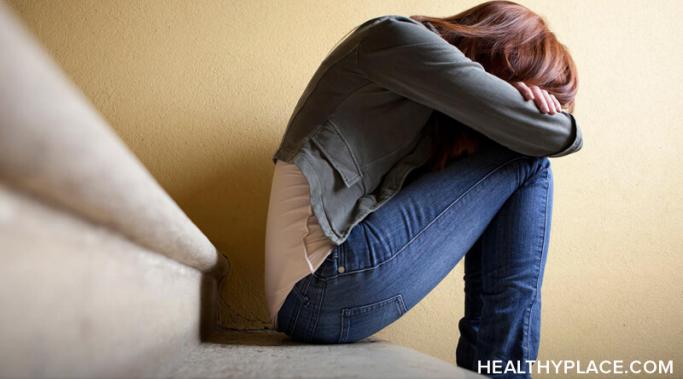We can be broken down by mental health stigma. Mental health stigma surrounds us everywhere, whether we’re aware of it or not — in movies, television shows, news, literature, and the list goes on. Despite each source generally rehashing the same stigma-fuelled notions and images (or perhaps because of it), the fact that there’s so much stigma can be really draining and we ought to take a moment to practice self-care before mental health stigma breaks us down.
Impact of Stigma
We need to take care of ourselves when facing mental health stigma. A little while ago, I was accused of pandering to mental health stigmatizers because in the blog in question I wasn't going for a throwdown against them. There is a reason for that, which is, even though I share tips how to fight stigma and approach stigmatizers, my main concern lies with the mental health community and the damage that can be done to the people in it when they see stigma all around them. We need to take care of ourselves.
Clickbait can increase mental health stigma. In the fast-paced world of the Internet, where everyone is vying for even a moment of attention, clickbait has become the way to get people to come to your page, even for sensitive matters such as people’s personal stories of mental illness. Unfortunately, sensationalism takes over and stories get warped to where they sometimes don't even reflect reality. In stories of mental illness, sensationalistic clickbait contributes heavily to stigma.
Success and failure are pretty common words in our everyday lives and they’re also prominent in conversations about mental health. When we see someone in recovery of any sort, we say they’re successful; we do this with ourselves, too. It’s often only when we’re acknowledging our own mental health recovery progress that failure comes into the mix. We feel like failures if we can’t succeed like those around us; we feel like failures if we have setbacks. It is because of that that I feel it would be better to remove the words success and failure from our mental health vocabulary.
In today’s day and age, it’s easier than ever for people to share their mental illness stories online. Whether it’s sharing a struggle, a small victory, a big triumph, or a plea for help, stories about mental illness are aplenty. While many call those who share their mental illness stories brave and strong, there are also those who tear them down, saying they should keep the information to themselves--and offline. If sharing mental illness stories annoys you, read on.
As I said in the first two parts of this series, parents and guardians want to help their children through their struggles, and that includes knowing how to help children cope with mental health stigma. In the previous installments, I discussed how you can make sure you’re not inadvertently stigmatizing your child and then how to talk with your child about mental illness stigma. There are plenty more things that parents can do to help their children facing mental illness stigma but to conclude I want to touch on a few more things that can be done right now.
When I was a child dealing with mental health stigma, I didn't really know what it was that set me apart. As a young adult, I have a better perspective on the mental health stigma your child faces. Although I’m not a parent or guardian of a child facing mental health stigma, I have a clear memory of how stigma affected me as a child. Plus, I've seen what my parents have gone through as I lived with mental illness at a young age. I also read posts and hear from parents and guardians who have children that suffer or live with mental health problems and it's heartbreaking to witness as they grapple with trying to help their child and feeling powerless to do so. So when I can, I try to help. I hope some of the tips that follow are ones you find helpful as you navigate your child’s mental illness and the potential mental health stigma your child can face.
Scars from mental illness are common but if we show them, are we attention-seeking. In today’s society, we have a very weird relationship with scars. More often than not, I see them treated as a source of shame, even if there’s absolutely no reason for that shame. Surgical scars, scars from accidents, scars from scrapes and falls—generally speaking, they’re kept under wraps because they’re seen as “defects” to our skin. When it comes to scars from mental illness, that shame doubles (To Hide or Not to Hide Self-Harm Scars).
If ruminating on memories of mental health stigma and discrimination haunt you, there are ways for you to stop ruminating. Taking back control when you remember events where you were stigmatized, can be as simple as taking a breath. Here are some techniques to help you stop ruminating on mental health stigma memories of when you were ill.
When you let stigma be a barrier to a full life, it means you are letting stigma win. By resisting stigma and fighting it, not letting it be a barrier, you are taking control of your life and will be on your way to mental illness recovery. Relationships and employment are not privileges, they are a right. As a human being you not only don't have to put up with stigma, you also have a right to find work, make a living or supplement your income, and have healthy relationships. In other words, it is important not to let stigma be a barrier to a full, happy and productive life.









